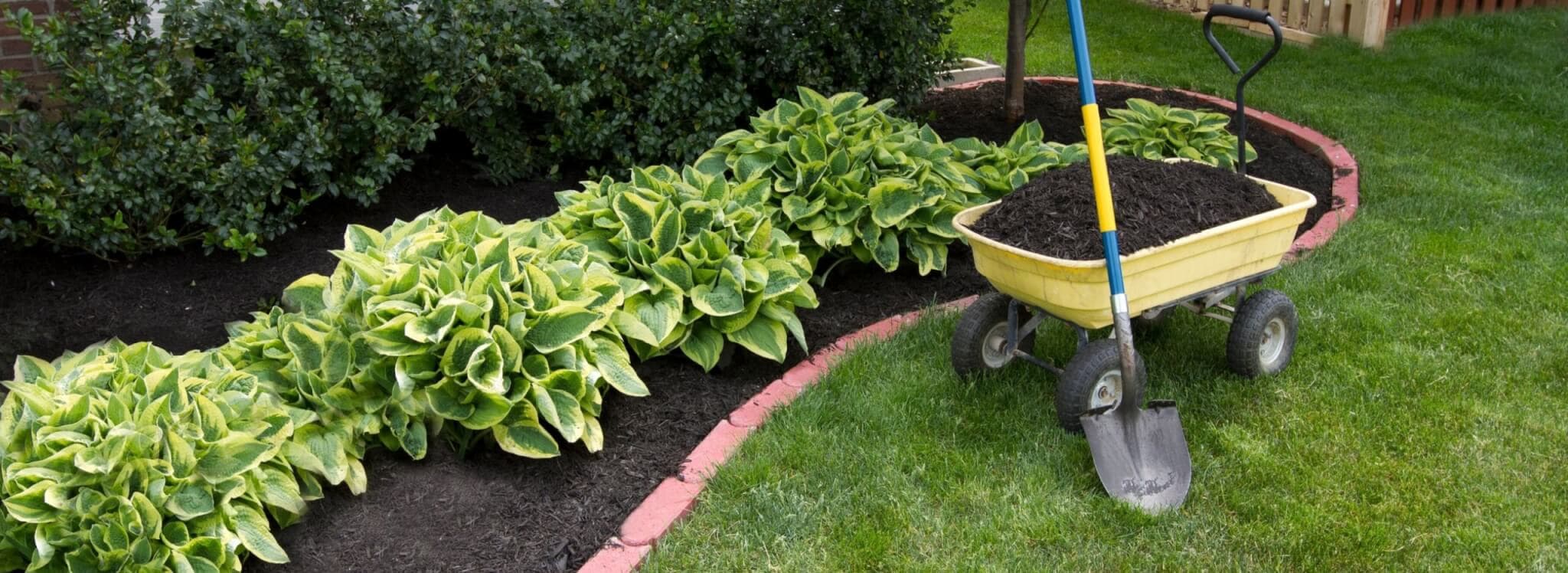Hometap Tip: Add New Mulch to Your Landscaping

When used properly, mulch can provide nutrients to your plants and prevent weed growth while also making your landscaping more attractive. Additionally, a home with well-maintained landscaping and tidy curb appeal can increase your home’s value by $5,000 when it comes time to sell. So, whether your motivation is pride of ownership or to appeal to new buyers, mulch adds aesthetic and financial value.
What to Do
Add new mulch to your flower beds and other landscaped areas around your property.
What You’ll Need
- Mulch
- Wheelbarrow
- Shovel
- Rake
- Garden hose
How to Do It
Select which mulch—organic or inorganic—will work best for your gardens, both from a functional and aesthetic perspective. Organic mulch (compost, wood chips, grass clippings, etc.) provides nutrients to soil and plants, prevents weeds, and protects roots and will need to be replaced every year. Inorganic mulch (gravel, river rock, stones, etc.) can match the color of your home and will have a longer duration than organic mulch, although it may be less effective at preserving your plants.
Once you’ve decided on the mulch type, figure how much you’ll need to cover your landscaping and purchase the correct quantity.
Paying attention to the roots of your flowers, trees, and shrubs, remove any weeds and old decomposed mulch from your landscaped areas. Create an edge (e.g., line of stones or recessed line in the soil) around the area to be mulched. Add any new plants to the area (if applicable). Shovel small piles of new mulch into the cleared and edged area, then rake across the surface, aiming for one to two inches of cover across your landscaping in summer, or four inches of cover for winter. Leave an inch of clearance around any tree trunks or plants. Water the new mulched area to settle it, taking care not to overwater.
You should know
We do our best to make sure that the information in this post is as accurate as possible as of the date it is published, but things change quickly sometimes. Hometap does not endorse or monitor any linked websites. Individual situations differ, so consult your own finance, tax or legal professional to determine what makes sense for you.




